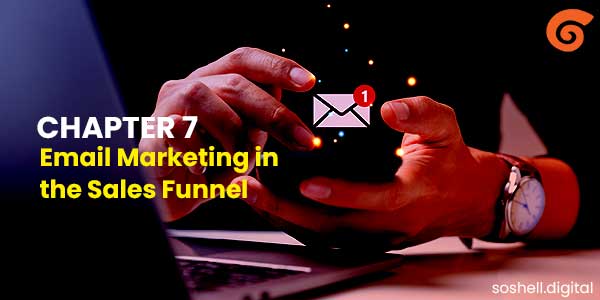Nurturing Leads to Conversion
Introduction
In the ever-evolving landscape of digital marketing, email remains a powerful tool for engaging prospects, nurturing leads, and guiding them through the various stages of the sales funnel. Email marketing offers a direct and personalized way to communicate with your audience, making it a crucial component of any successful sales funnel strategy. In this article, we’ll explore the pivotal role of email marketing in lead nurturing and how it aids in moving prospects through the sales funnel.
Understanding the Sales Funnel
Before delving into the significance of email marketing, let’s briefly review the key stages of the sales funnel:
- Awareness: Prospective customers become aware of your brand, product, or service. At this stage, they are seeking information and solutions to their pain points.
- Interest: Leads express interest in your offerings. They seek more in-depth information to understand how your product or service can address their specific needs.
- Consideration: Prospects evaluate your offerings alongside competitors. They are looking for evidence and social proof that your solution is the best fit for their problem.
- Intent: Leads are ready to take action. They may be comparing pricing, reading reviews, or seeking final reassurance before making a decision.
- Conversion: The lead becomes a customer by making a purchase or taking another desired action, such as signing up for a newsletter or requesting a demo.
- Loyalty: Delighted customers can become loyal advocates who not only make repeat purchases but also refer others to your business.
The Role of Email Marketing
Email marketing is a versatile tool that can address the needs of leads at various stages of the sales funnel:
Awareness
- Welcome Emails: As prospects enter the funnel, send them a warm welcome email introducing your brand and highlighting your value proposition.
- Educational Content: Provide informative blog posts, infographics, or video links that address common pain points within your industry.
2. Interest
- Drip Campaigns: Create automated email series that deliver valuable content over time, keeping leads engaged and informed.
- Webinar Invitations: Promote webinars or virtual events that showcase your expertise and offer in-depth insights.
3. Consideration
- Case Studies: Share success stories and case studies via email to demonstrate how your product or service has solved specific problems.
- Product Demos: Offer personalized product demos through email to help leads visualize the benefits of your solution.
4. Intent
- Abandoned Cart Emails: Remind leads of their abandoned shopping carts and provide incentives to complete their purchase.
- Limited-Time Offers: Create a sense of urgency with exclusive offers and discounts delivered via email.
5. Conversion
- Confirmation Emails: Send order confirmations, receipts, and post-purchase thank-you emails to reassure customers.
- Cross-Selling and Upselling: Recommend complementary products or upgrades to existing customers.
6. Loyalty
- Exclusive Content: Reward loyal customers with early access to promotions, special discounts, or exclusive content.
- Feedback and Surveys: Gather feedback through email surveys to continually improve your products or services.
Conclusion
Email marketing is a dynamic and essential component of the modern sales funnel. By delivering targeted and relevant content to leads at each stage, email campaigns can nurture relationships, build trust, and ultimately drive conversions. However, successful email marketing requires a well-structured strategy, personalized messaging, and continuous optimization. When executed effectively, email marketing can significantly impact lead nurturing and play a pivotal role in moving prospects seamlessly through the sales funnel.
